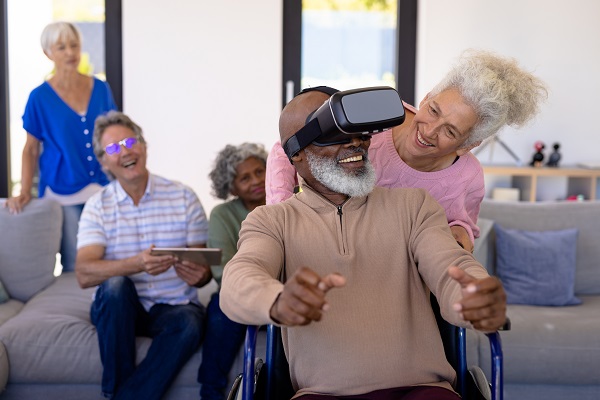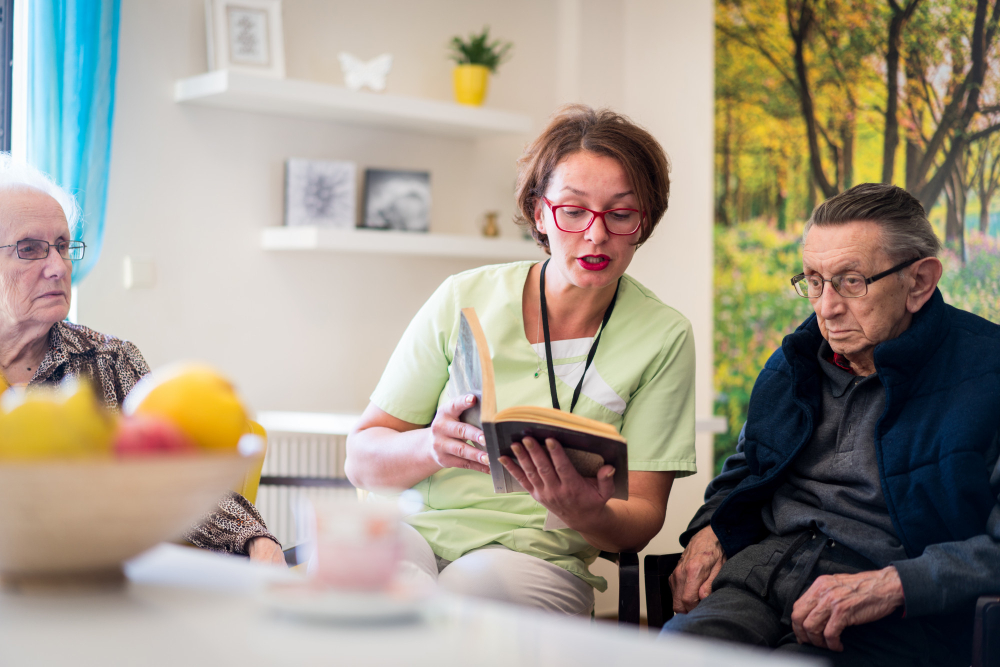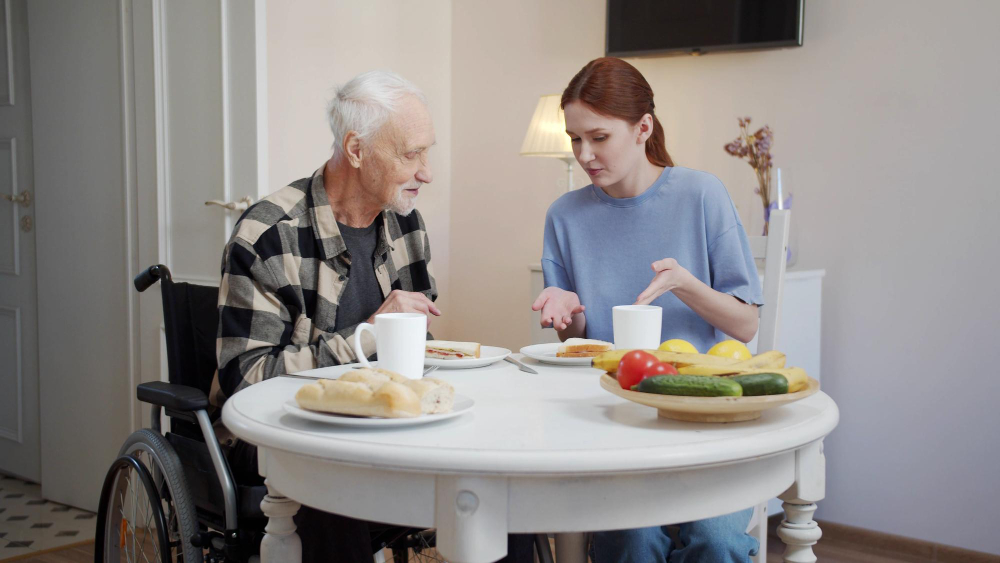
Introduction
Alright, care home operators, buckle up! We’re diving into a topic that’s more essential than your morning coffee—nutrition in resident care. Now, you might be thinking, “Why all the fuss about food?” Well, proper nutrition is the secret sauce to the overall health and well-being of your residents. Think of it as the foundation of a happy, healthy, and energetic care home. So, let’s get cooking!
Understanding the Nutritional Needs of Residents
First things first, let’s chat about what our elderly residents actually need on their plates. Unlike the one-size-fits-all buffet at your cousin’s wedding, nutrition for elderly residents in care homes is all about individualization. Each resident has unique dietary needs based on health conditions, allergies, and personal preferences.
Imagine Grandma Betty, who loves her mashed potatoes but has to watch her blood sugar levels. Or Grandpa Joe, who can’t get enough of his steak but needs to keep his cholesterol in check. Tailoring meal plans to meet these specific needs is crucial. It’s like being a culinary artist with a very specific (and important) clientele.
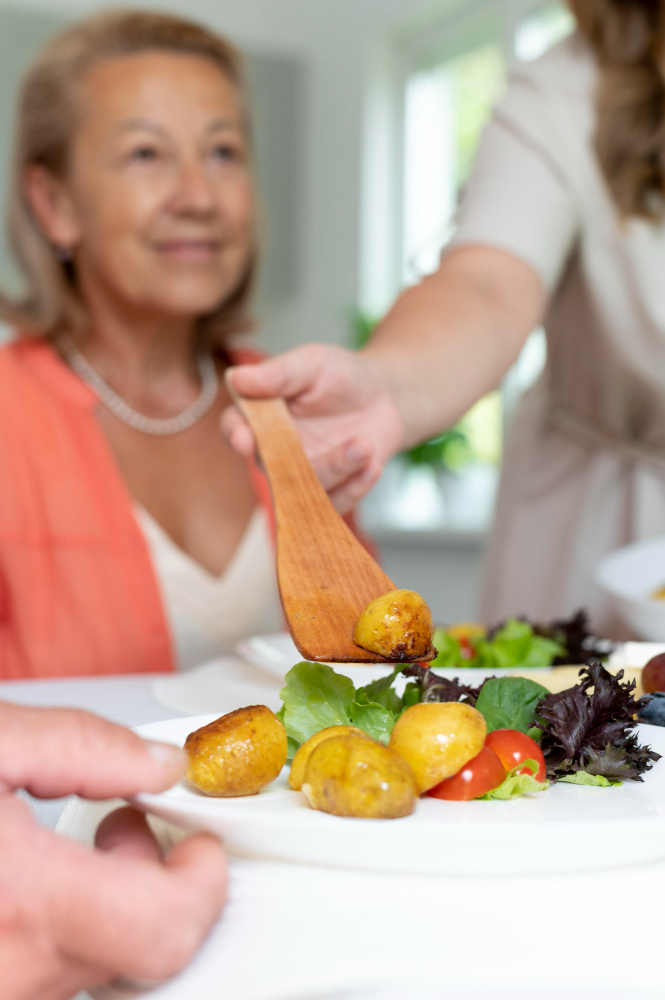

Implementing a Balanced and Nutritious Menu
Creating a balanced menu is like assembling the perfect playlist for a road trip—variety is key! Start with the basics: proteins, carbohydrates, fats, vitamins, and minerals. Mix them up to keep things exciting. Nobody wants to eat the same thing day after day, not even the resident with the world’s biggest sweet tooth.
Here’s a tip: Incorporate colorful fruits and vegetables, lean proteins, and whole grains. Think of it as painting a nutritional masterpiece on each plate. And don’t forget to sprinkle in some resident favorites—comfort food with a healthy twist can be a real hit.
Training Staff on Nutrition and Meal Preparation
Now, you wouldn’t let just anyone handle your grandma’s secret cookie recipe, right? The same goes for preparing nutritious meals in a care home. It’s essential to train your staff on the ins and outs of nutrition and meal prep.
Consider this: a well-trained staff can turn a bland, boring meal into a delightful dining experience. They need to know how to balance nutrients, understand dietary restrictions, and whip up meals that are both tasty and healthy. And hey, why not throw in some resources for continuing education? A team that’s always learning is a team that’s always improving.
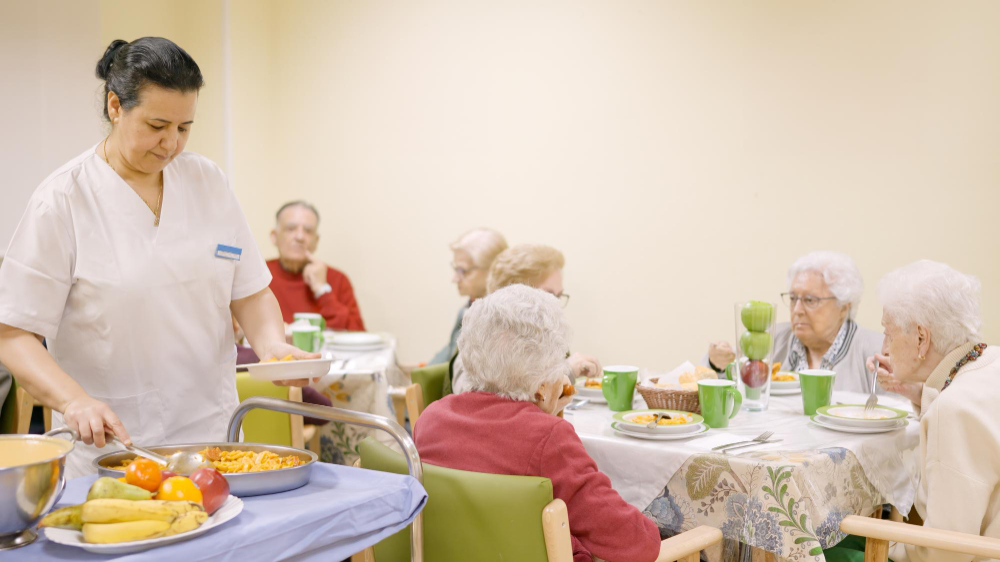

Monitoring and Evaluating Residents’ Nutritional Intake
Alright, so you’ve got the menu and the staff—what’s next? Keeping an eye on what residents are actually eating. Regular monitoring of nutritional intake is like being the detective in a culinary mystery. Is Mr. Smith not eating his veggies? Is Mrs. Jones skipping breakfast?
Track food consumption and look out for any red flags. This way, you can address concerns or deficiencies before they become major issues. And remember, a happy, well-fed resident is a healthy resident.
Conclusion
To wrap things up, let’s hit the highlights. Nutrition is the backbone of resident care in any care home. By understanding individual needs, creating balanced menus, training your staff, and monitoring intake, you’re setting your residents up for a healthy, happy life.
So, put on your chef’s hat (or at least a really cool apron), and let’s make nutrition a priority. After all, a well-nourished resident is not just a resident—they’re family. And family deserves the best, right? Bon appétit!
FAQs: The Role of Nutrition in Resident Care
Why is proper nutrition so important for elderly residents in care homes?
Proper nutrition is crucial for elderly residents because it directly impacts their overall health and well-being. Good nutrition helps maintain a healthy weight, boosts the immune system, supports cognitive function, and reduces the risk of chronic diseases. Think of it as the fuel that keeps their engines running smoothly!
How do we cater to the individual dietary needs of each resident?
Catering to individual dietary needs involves creating personalized meal plans based on each resident’s health conditions, dietary restrictions, and personal preferences. Regular consultations with dietitians, monitoring health conditions, and listening to residents’ feedback can help tailor these plans. It’s like being a personal chef with a medical degree!
What should a balanced and nutritious menu for care home residents include?
A balanced and nutritious menu should include a variety of foods that provide essential nutrients. This means incorporating plenty of fruits and vegetables, lean proteins, whole grains, and healthy fats. The goal is to make meals that are not only nutritious but also enjoyable and diverse, so residents look forward to mealtime.
How can we ensure our staff is well-trained in nutrition and meal preparation?
Ensuring your staff is well-trained involves providing comprehensive training programs on nutrition basics, meal preparation, and special dietary needs. Offering continuous education opportunities, such as workshops or online courses, can keep your staff updated on the latest nutrition information and cooking techniques. After all, a knowledgeable staff is the secret ingredient to success!
You may also like
- https://www.mychartspace.com/how-to-become-a-caregiver/
- https://www.mychartspace.com/health-and-safety-in-residential-care-homes/
- https://www.mychartspace.com/caregiver-burnout/
- https://www.mychartspace.com/digital-charting-for-caregivers/
- https://www.mychartspace.com/dealing-with-difficult-elderly-patients/
- https://www.mychartspace.com/how-to-manage-caregiver-stress/
- https://www.mychartspace.com/marketing-tips-for-residential-care-homes/

